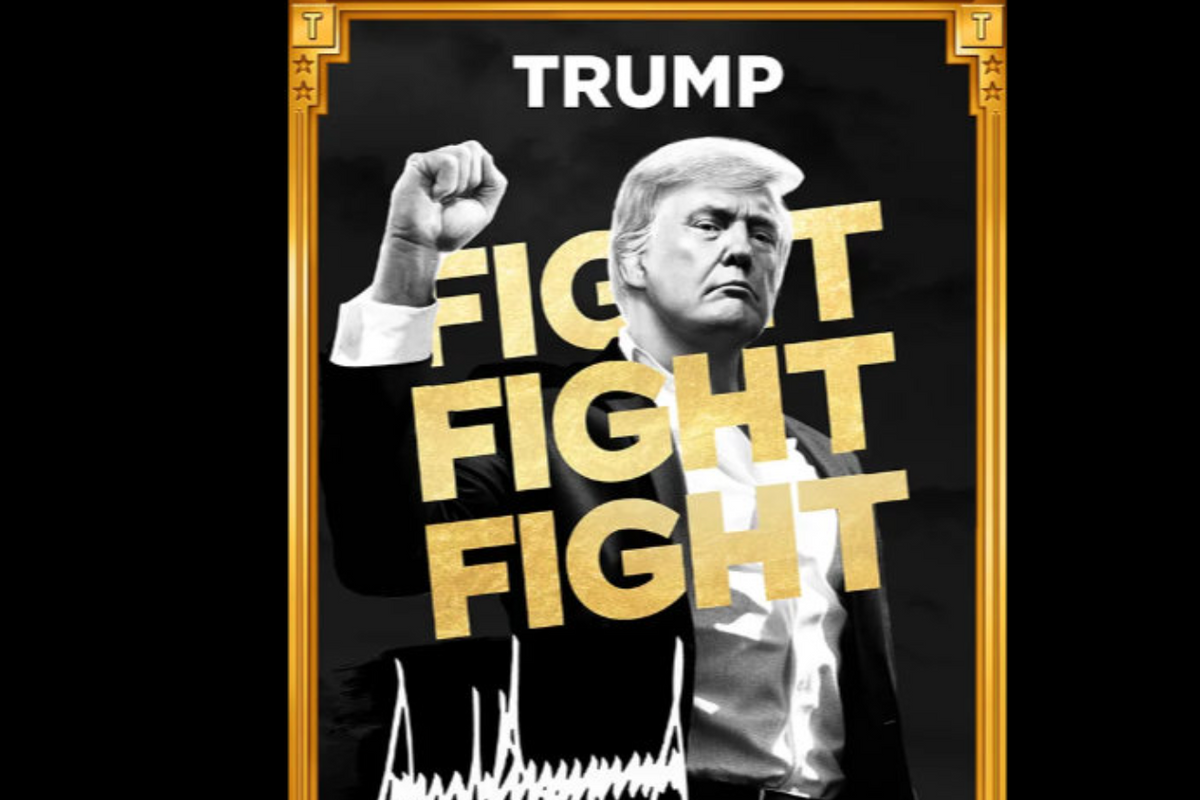Image of Donald Trump's memecoin
Right before his inauguration, Donald Trump issued a $TRUMP meme coin featuring a defiant him pumping his fist after an assassination attempt. Shortly after their release, the market capitalization for $TRUMP coins passed $5 billion.
Oracle of Omaha Warren Buffett once called bitcoin "rat poison squared." Jamie Dimon, chief at JPMorgan Chase, noted that "it's got no intrinsic value," adding, "I remember when Beanie Babies were selling for $2,000 a pop."
Beanie Babies. Back in the 1990s, crowds pushed their way into toy stores to get in on Beanie Babies. TV hucksters would claim that a $1,500 investment in a Beanie Baby today could be worth $75,000 in 10 years.
What were Beanie Babies? They were cute animal dolls, basically pieces of fabric stuffed with plastic pellets. Most anyone with a sewing machine could make a Beanie Baby replicant. To protect against copies, creator Ty Warner had heart-shaped Ty tags attached to each. (Though tags were counterfeited as well.)
To drive up the prices of a $5 toy, Warner worked the psychology of scarcity through limited supplies and selective distributions. Bitcoin promoters likewise argue that the limited supply of the cryptocurrency maintains the investment's value.
Bitcoin's price is fueled by the Greater Fool Theory — that the fool who buys it needs only find a bigger fool to pay more for it than he did. That's how Beanie Baby mania worked.
"Is Trump's bitcoin embrace the biggest 'pump-and-dump' ever?" Economists Jeffrey Funk and Gary Smith, writing for MarketWatch, ask that question. Could Trump be pushing up crypto's value to unheard-of levels with the intention of dumping it at a high price and leave the greater fools holding the bag? And my question, could some billionaire pals be in on it?
Trump has been scamming the little guys for decades. In 1995, he got his fans to bail out his collapsing Atlantic City empire by selling them $140 million in Trump casino stock. (He had convinced them that he was a financial genius.) The investors were cleaned out.
Trump's army of lawyers are protecting him against a possible crash in the value of $TRUMP meme coins. The contract's small print strictly limits class action suits — and states that the coins are "NOT INTENDED TO BE ... AN INVESTMENT OPPORTUNITY, INVESTMENT CONTRACT, OR SECURITY OF ANY TYPE."
But to muddy that idea for the rubes, the Trump memes website notes they are "freely tradeable on the blockchain." Buyers can thus pretend to be crypto bros, as the ads show, lounging at the pool, as perfect female bodies sun in the background.
People who bought Trump Bibles or Trump sneakers, never mind the price, at least had a Bible or sneakers to show for it. As for those who regard the $TRUMP coins merely as a memento of the Great God Trump, something to pass down to their heirs — they could be OK.
Crypto ringmasters, meanwhile, love Trump's vow to deregulate. Also his extravagant promises to have the Treasury Department — that is, the taxpayers — buy billions of dollars of the cryptocurrency for a "Bitcoin Strategic Reserve." It would supposedly be used to pay off the national debt.
"How would the U.S. government buying bitcoin at inflated prices pay off America's debt?" Funk and Smith ask.
Crypto is a crazy volatile investment. In 2022, the value of bitcoin plunged 80% from its high after the collapse of the FTX crypto exchange. If inflating the price of crypto is part of a Trump scheme, we can assume the players will have dumped it in time for any crash. The greater fools would suffer: That's their lot. But please, please leave we taxpayers out of it.
Reprinted with permission from Creators.









